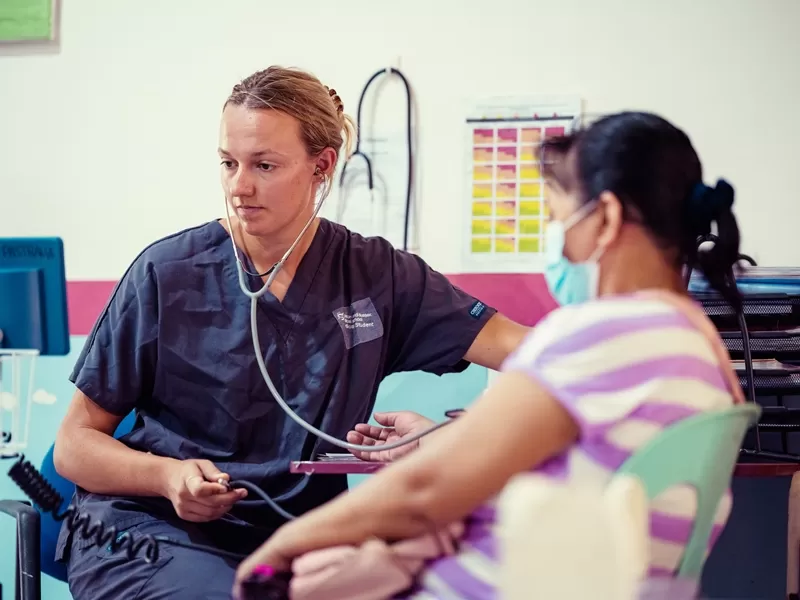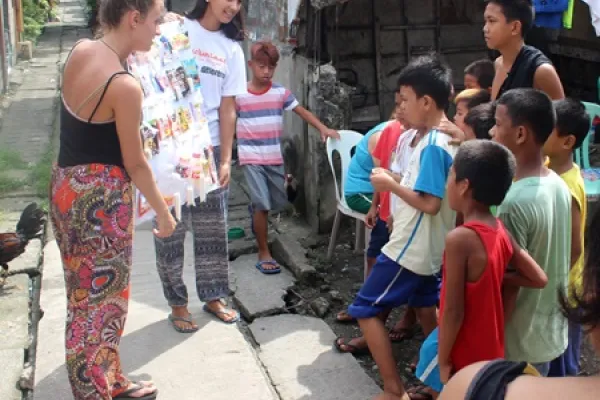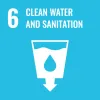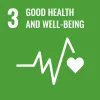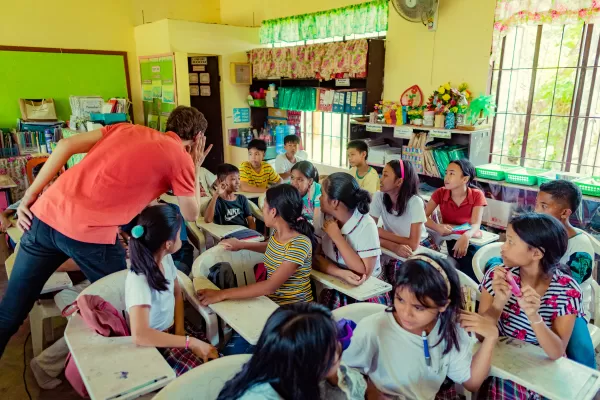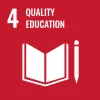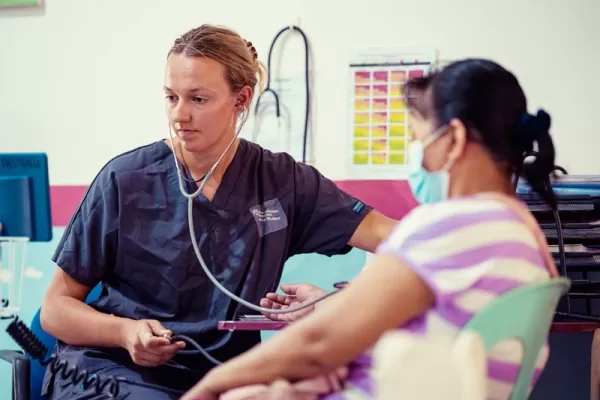Overview
O Rural Medical Volunteer Program nas Filipinas é dedicado a fornecer assistência médica para os moradores locais, bem como obter perspectiva sobre a situação da saúde nas Filipinas. Sob este projeto, os voluntários da VolSol têm a oportunidade de trabalhar em clínicas subfinanciadas com base nas áreas rurais fora da cidade de Tacloban. Essas são basicamente clínicas rurais e enfrentam uma escassez de mão de obra e mãos qualificadas. Nossos voluntários seriam necessários para auxiliar a equipe da clínica e os médicos com atividades regulares de assistência médica.
O voluntariado em uma Clínica de Saúde Rural é uma oportunidade de ajudar a fornecer cuidados médicos aos moradores locais, bem como ganhar perspectiva sobre a situação da saúde nas Filipinas. Os voluntários podem ajudar com consultas, imunização, exames pré-natais, partos naturais, missão médica, se houver, visitas a aldeias e programas de saúde comunitários.
Os voluntários médicos podem causar um impacto significativo na vida dos moradores locais trabalhando nas clínicas e fornecendo serviços médicos gratuitos a eles. O lado bom é que os voluntários podem atuar em um poço de pressão, ultrapassando seus limites e também ganhando conhecimento prático enquanto fazem isso. Esta é uma oportunidade especial de voluntariado médico em áreas rurais, onde os voluntários se envolvem com outros projetos de saúde pública, como a Missão Médica Anual ou o Check-up Médico Anual para todas as crianças matriculadas em vários projetos de desenvolvimento social. Ao se voluntariar neste local, os alunos que embarcam em uma carreira na área da saúde poderão ganhar experiência valiosa. Profissionais estabelecidos terão a oportunidade de compartilhar seus conhecimentos e habilidades enquanto aprendem sobre as condições de assistência médica nas Filipinas.
Exemplo de perfil de colocação - Sta Fe Rural Health Clinic
A clínica está localizada na cidade de Sta. Fe. Ela está localizada a sudoeste da cidade de Tacloban. A clínica é chefiada pelo médico de saúde pública que é um clínico geral. Ela também tem uma enfermeira regular de saúde pública e um dentista visitante. Ela tem algumas parteiras.
A Sta. Fe Rural Health Clinic é uma clínica gratuita sem hora marcada que atende toda a comunidade de Sta. Fe. É uma unidade de saúde administrada pelo governo que aceita pacientes de todas as idades, geralmente aqueles que não podem pagar por médicos especialistas. Ela fica aberta durante a semana, de segunda a sexta, das 8h às 17h, exceto em feriados. A consulta geral é realizada três vezes ao dia. No entanto, sua unidade de parto fica aberta 24 horas por dia, 7 dias por semana, para atender mães prestes a dar à luz.
Como uma unidade de saúde primária, ela realiza consultas gerais, pequenas cirurgias, imunização, exames pré-natais, parto normal e saúde comunitária (visitas à aldeia). A clínica de parto está em funcionamento para atender mães que devem dar à luz normalmente. Uma vez determinado que a mãe precisa passar por uma cesárea, ela será encaminhada ao hospital público mais próximo.
Os voluntários trabalham junto com enfermeiros, parteiras e o médico. O horário de trabalho do voluntário é de pelo menos 4 horas diárias, de segunda a sexta, das 8h às 12h, exceto durante feriados. Durante as visitas às aldeias, o horário de trabalho geralmente é estendido até a tarde.
Horário de trabalho voluntário
Horário de trabalho voluntário
Um cronograma típico de voluntariado neste programa é o seguinte;
Sábado/Domingo - Chegada
Segunda-feira - Orientação. Uma sessão de orientação será conduzida pelo coordenador local, cobrindo áreas temáticas; como segurança, cultura, idioma, lugares para visitar, comportamento, comida e outras sugestões sobre coisas para fazer nas Filipinas
Segunda a Sexta - Trabalho Voluntário
Café da manhã - 6:00 da manhã
Trabalho voluntário - 08:00 às 12:00 geralmente
Almoço - Após o horário de trabalho no projeto (os voluntários precisam providenciar o almoço por conta própria. Eles podem escolher ir para casa e cozinhar o almoço ou podem comprar uma refeição em qualquer um dos restaurantes mais próximos).
Jantar - A partir das 18:00 horasFins de semana - Livre para explorar a cidade
O mesmo cronograma de trabalho voluntário continua a partir da segunda semana
Observação: observe que o cronograma pode variar dependendo do projeto específico do qual o voluntário está participando.
Funções e responsabilidades dos voluntários
Funções e responsabilidades dos voluntários
Os voluntários usam suas habilidades médicas e expertise para lidar com as atividades do dia a dia na clínica. Algumas das atividades que você realizará (não limitadas a isso):
Auxiliar o médico local nas consultas diárias
Ajudar com iniciativas governamentais locais, como vacinação ou desparasitação
Visite os bairros locais durante as consultas clínicas comunitárias
Realização de workshops (dependendo da sua experiência)
Realizar consultas clínicas comunitárias visitando comunidades locais
Os voluntários também podem ter a oportunidade de ajudar em seminários pré-natais e outras oficinas de saúde comunitárias.
Ajudando em procedimentos de parto e partos
A natureza do envolvimento de um voluntário na clínica depende de sua qualificação e conjunto de habilidades. Normalmente, um voluntário auxilia na coleta de informações e sinais vitais do paciente. Um voluntário qualificado pode ajudar com a imunização. O exame pré-natal é feito manualmente e é algo que o voluntário também pode aprender a fazer. Visitas a vilas são uma ótima oportunidade para observar as áreas rurais e auxiliar na prestação de serviços médicos. Também é uma boa oportunidade para conduzir breves palestras sobre saúde ou distribuir folhetos sobre questões importantes de saúde.
Um voluntário estudante de medicina passa mais tempo auxiliando e acompanhando o médico, embora ele/ela também trabalhe com a outra equipe. Um voluntário médico trabalha ao lado do médico local durante a consulta. Ele/ela é particularmente útil quando o médico não está por perto, o que é muito frequente. Com a ajuda de uma equipe local, geralmente uma enfermeira para traduzir, o voluntário médico recebe a responsabilidade de consultar os pacientes. Um médico também pode iniciar a transferência de conhecimento por meio de workshop ou capacitação.
Project Requirement
Project Requirement
Os voluntários devem ter 18 anos ou mais no momento de ingressar no projeto e devem ser flexíveis e de mente aberta para trabalhar em um ambiente novo e desafiador. Os voluntários médicos devem fornecer um relatório de verificação de antecedentes criminais limpos, CV, cópia do passaporte, bem como outros documentos e credenciais pertinentes às suas qualificações antes de ingressar no programa. Estudantes de pré-medicina, medicina, enfermagem, estudantes de obstetrícia, CNAs, parteiras, enfermeiros e médicos podem ingressar no programa. Todos os voluntários devem aderir ao traje profissional enquanto estiverem nas clínicas. O projeto tem um requisito mínimo de participação de 2 semanas.
Schedule a Google Meet with a Program Advisor
Interested in our programs? We're here to provide expert guidance
- Get Detailed Info
- 20 min One -on-One meeting
- Get expert advise
- Application Guidance
Photo Gallery
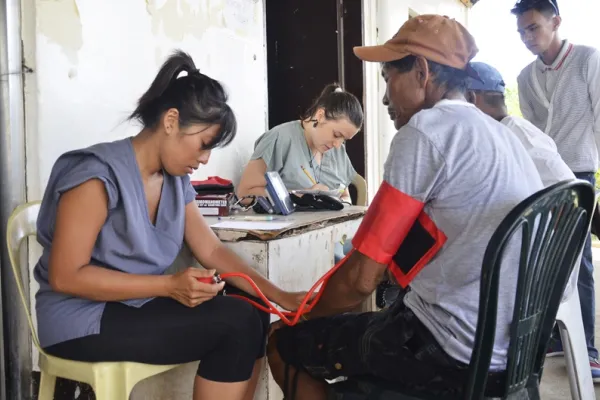
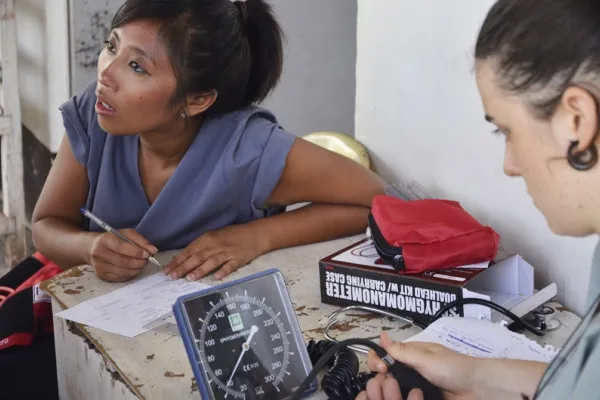
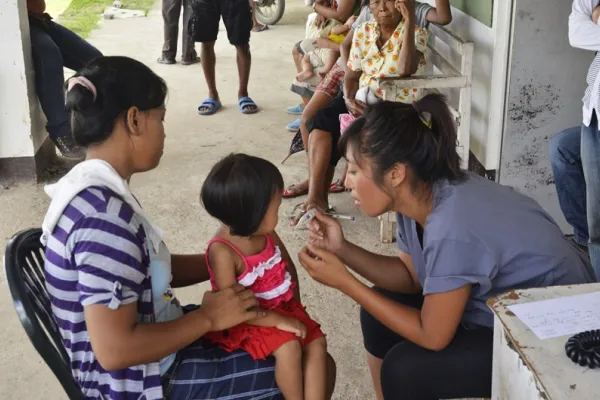
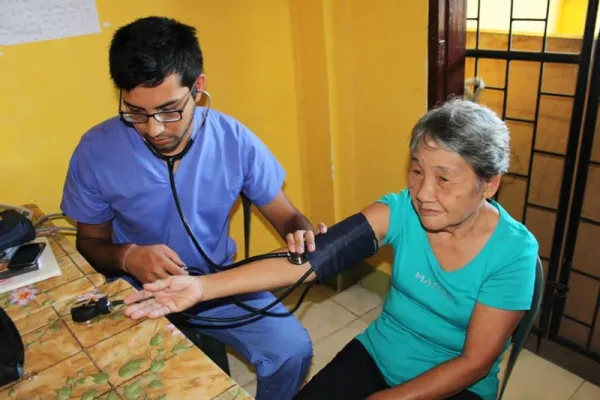


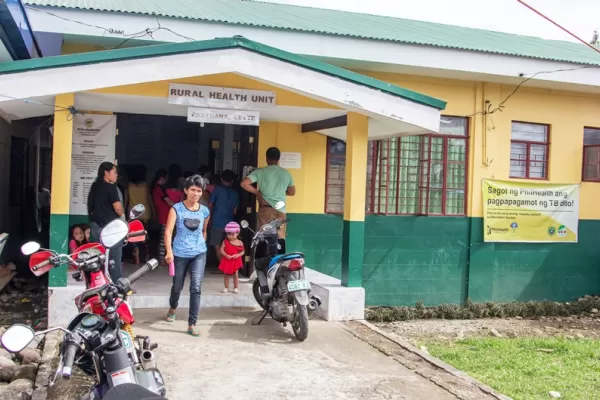
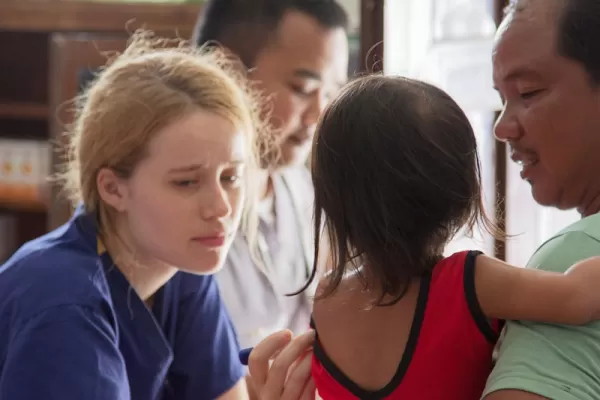
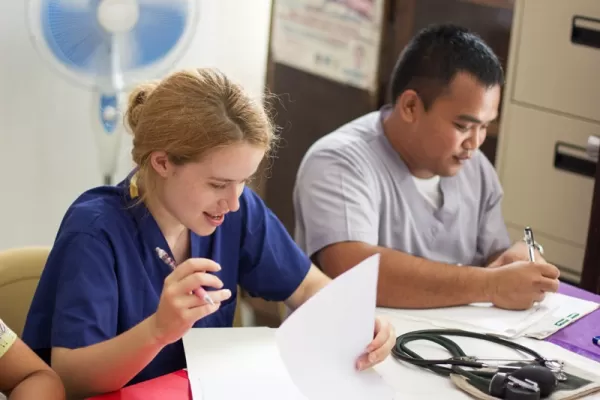
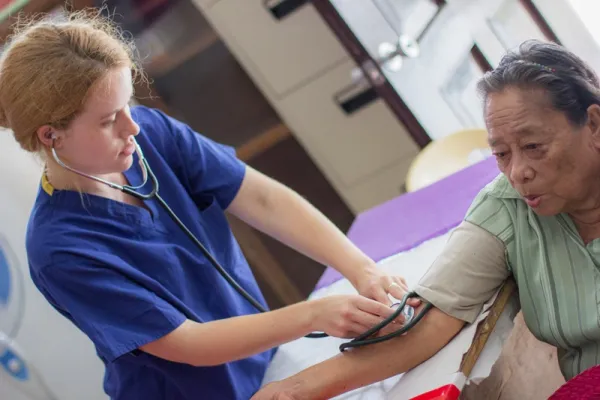
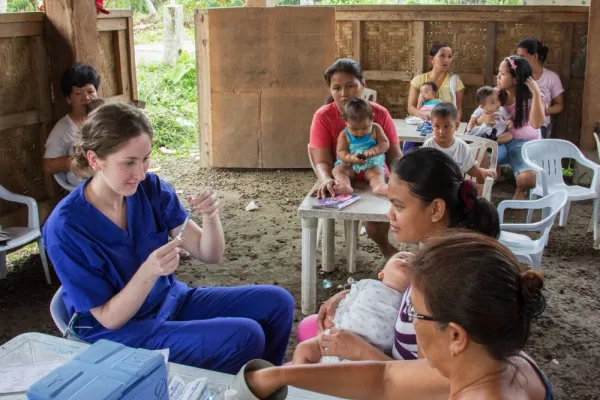
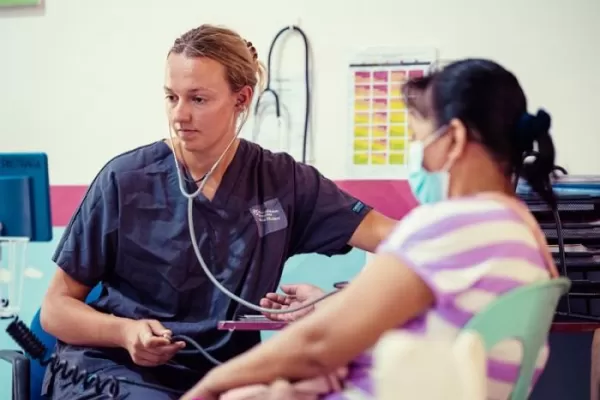
Living
Living
Transfer do aeroporto
Os voluntários são buscados e deixados no Aeroporto de Tacloban por um representante local. Os voluntários podem chegar no sábado ou domingo antes de iniciar a orientação na segunda-feira.
Orientação
A orientação acontece às segundas-feiras e inclui uma cobertura abrangente de diversos tópicos relevantes. É ministrada por um membro qualificado da equipe local. A orientação inclui as seguintes atividades:
Introdução ao programa, sua história, estrutura e organização
Introdução às Filipinas e à cultura filipina
O que esperar do Programa de Voluntariado
Briefing de Saúde e Segurança
Briefing de Política de Comportamento
Introdução à colocação real, com atenção especial ao transporte
Introdução à equipe de colocação e voluntários
Alojamento
Os voluntários viverão com famílias anfitriãs residentes na região de Tacloban. As famílias anfitriãs foram cuidadosamente avaliadas antes de serem aceitas em nosso programa de hospedagem. Temos experiência em acomodar voluntários internacionais. Antes da sua chegada, você receberá um perfil descrevendo as características da sua família anfitriã.
Sua família anfitriã o receberá em sua casa e o tratará como um membro da família. Ao morar com eles, você poderá vivenciar a cultura filipina e participar de suas atividades diárias. Você comerá a mesma comida que eles, embora sua família anfitriã saiba o que os estrangeiros gostam de comer. Se você tiver necessidades alimentares especiais, é melhor nos informar com antecedência para que possamos atendê-lo. Você receberá apenas duas refeições por dia: café da manhã e jantar. Sua família anfitriã também fornecerá água potável filtrada, pois é melhor não beber água da torneira. Todas as famílias anfitriãs têm eletricidade e água encanada. Você terá um quarto privativo, sozinho ou compartilhado com um colega voluntário. Você também receberá mosquiteiro e ventilador elétrico. O banheiro ou lavabo, comumente chamado de "quarto de conforto ou CR", será compartilhado com todos os membros da família.
As acomodações com banheiro são básicas e o voluntário tomará banhos frios de balde, pois chuveiros quentes são incomuns nas casas filipinas – não se preocupe muito com isso, pois banhos frios de balde costumam ser revigorantes depois de passar o dia todo no calor tropical. Por fim, os voluntários também terão que se acostumar ao som dos galos cantando antes mesmo do amanhecer.
Refeições
Durante o seu período como voluntário, você receberá duas refeições diárias (café da manhã e jantar) da sua casa de família. Além disso, a casa de família também fornecerá acesso a água potável. Todas as refeições serão servidas com arroz e geralmente incluem peixe, frango ou carne de porco. As casas de família podem atender a restrições alimentares especiais, no entanto, solicitamos que você inclua isso no formulário de inscrição.
Durante seu tempo livre
A equipe de coordenação local nas Filipinas organiza duas excursões para os voluntários. Em uma delas, os voluntários visitam pontos turísticos locais, como a Ponte San Juanico, o Santuário de Santo Niño e o Parque Memorial MacArthur Landing. Os voluntários terão a oportunidade de vivenciar a beleza natural da ilha tropical de Leyte.

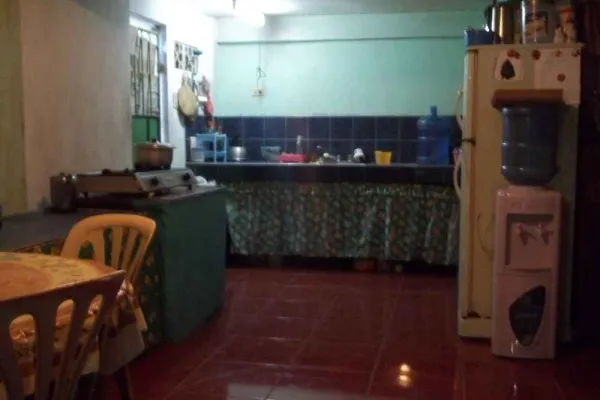
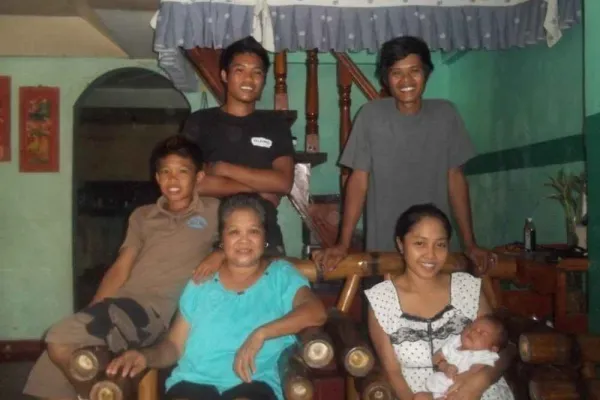


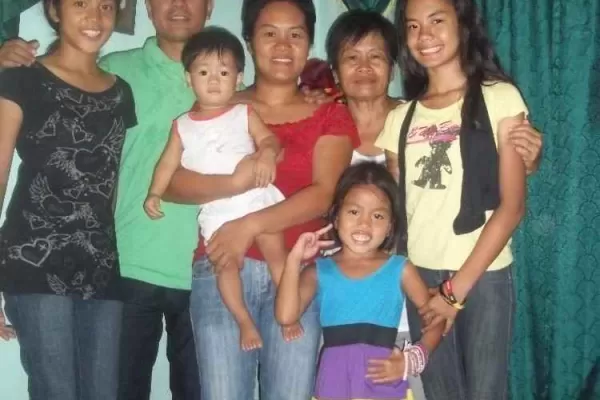
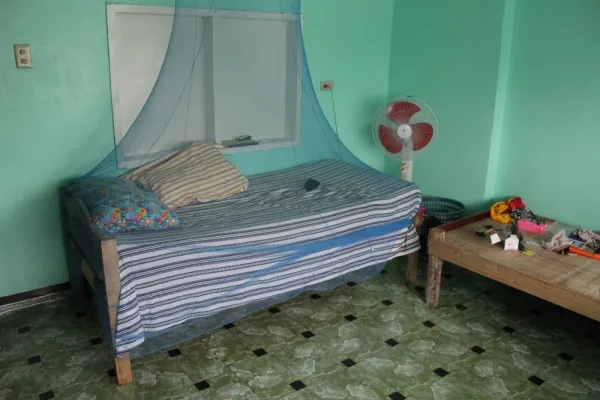

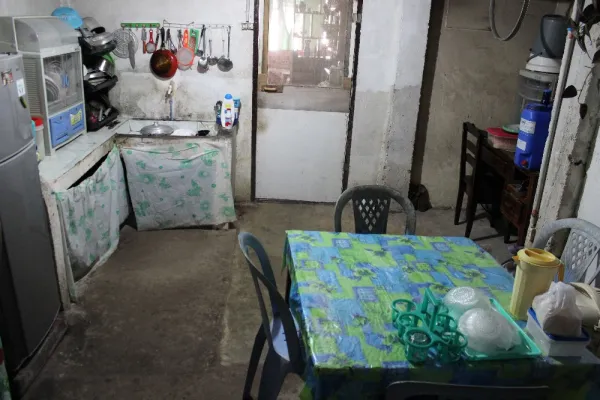
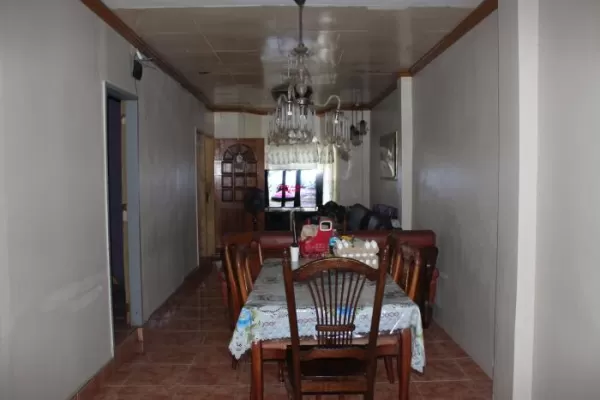
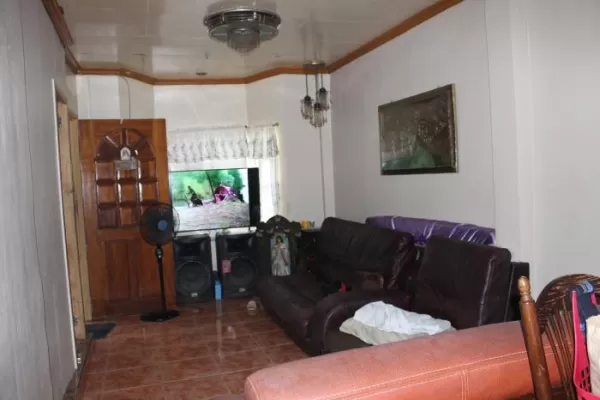
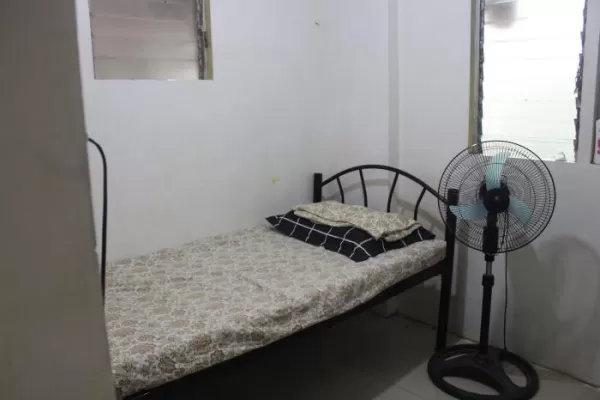
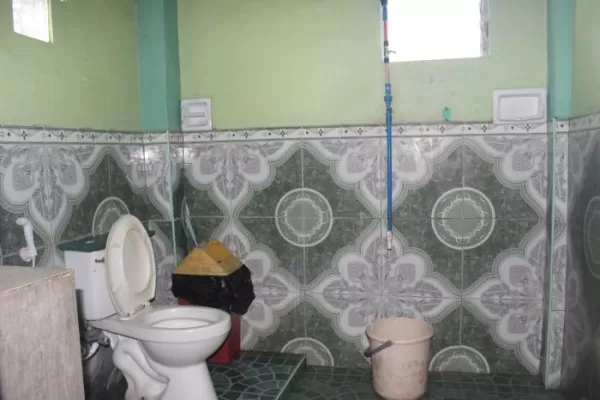
Dates
Dates
January
04
11
18
25
February
01
08
15
22
March
01
08
15
22
29
April
05
12
19
26
May
03
10
17
24
June
07
14
21
28
July
05
12
19
26
August
02
09
16
23
30
September
06
13
20
27
October
04
11
18
25
November
01
08
15
22
29
December
06
13
20
27
January
03
10
17
24
February
07
14
21
28
March
07
14
21
28
April
04
11
18
25
May
02
09
16
23
June
06
13
20
27
July
04
11
18
25
August
01
08
15
22
29
September
05
12
19
26
October
03
10
17
24
31
November
07
14
21
28
December
05
12
Costs
| Duration |
Program Fee
|
Choose your currency
|
|---|---|---|
| 2 Weeks | $890 | |
| 3 Weeks | $1040 | |
| 4 Weeks | $1190 | |
| 5 Weeks | $1340 | |
| 6 Weeks | $1490 | |
| 7 Weeks | $1640 | |
| 8 Weeks | $1790 | |
| Extra Week | $200 |
Please Note: An application fee of is charged over and above the program fee as an application payment. A 5% international banking fee is charged for credit card payments of program fee in USD/AUD.
O que você está pagando?
- Recolha e entrega no aeroporto
- Orientação de Boas-vindas – Orientação do Programa
City Tour e Orientação de Colocação - Acomodação em uma família anfitriã filipina
- 2 refeições por dia
- Pacote de informações detalhadas antes da partida
- Colocação de Projeto
- Assistência e suporte 24 horas por dia de funcionários locais
- Seguro de viagem e médico (disponível por um custo extra)
- Certificado de Participação (mediante solicitação)
O que NÃO está incluído?
- Visa
- Vacinações
- Voos
- Transporte local
- Despesas pessoais
FAQ's
Alojamento, refeições e vida diária
-
Como faço para chegar ao local do programa?
-
Seu coordenador de projeto o levará ao local de trabalho e o apresentará a todos após uma breve orientação sobre o programa, a cidade, a cultura etc. Antes de iniciar o projeto, você receberá uma orientação completa, que incluirá instruções sobre como chegar e voltar do local, como ir e voltar do centro da cidade (localização de caixas eletrônicos, restaurantes, lojas de souvenirs e casas de câmbio), além de uma breve introdução à cultura e etiqueta filipinas.
O 'Jeepney', um ônibus colorido feito a partir de antigos veículos militares americanos, é o meio de transporte mais comum nas Filipinas e é utilizado para viagens de curta a média distância. Este é o meio de transporte mais comum entre os voluntários em Tacloban.
Para viagens mais longas, existem ônibus convencionais, enquanto motocicletas, triciclos e táxis particulares, chamados de "Spider Cabs", também podem ser usados para viagens de média distância. Se você pretende apenas percorrer a rua de baixo, pode optar por um triciclo motorizado, uma bicicleta adaptada com um carrinho lateral acoplado.
-
Poderia me dar mais informações sobre acomodação e alimentação?
-
A Volunteering Solutions organiza acomodações para voluntários com famílias filipinas locais na comunidade. Hospedar-se com uma família local é uma experiência enriquecedora e parte da imersão cultural, permitindo conhecer seu modo de vida, costumes e tradições. As famílias anfitriãs são membros respeitados da comunidade local, selecionados criteriosamente e com vasta experiência em receber voluntários. Você terá um quarto individual ou compartilhado, com espaço seguro para guardar sua bagagem (traga seu próprio cadeado), repelente de mosquitos e ventilador. Água potável também estará disponível. Pedimos aos voluntários que sejam conscientes em relação ao consumo de energia elétrica. Serão fornecidas duas refeições por dia (café da manhã e jantar), que podem variar, mas geralmente serão pratos tradicionais filipinos. Prepare-se para comer bastante arroz!
-
Terei tempo livre durante o meu programa? Posso fazer passeios turísticos durante o meu programa?
-
Os voluntários têm os fins de semana livres para passear e socializar com outros voluntários do programa. A cidade de Tacloban oferece opções para quase todos os tipos de viajantes, desde o Shopping Robinsons até belas praias ensolaradas nos arredores da cidade. O que você fará durante seu tempo livre é totalmente por sua conta, mas nossa equipe pode ajudá-lo(a) a planejar sua viagem. Os voluntários também podem relaxar nos diversos resorts de praia, principalmente no Tadjaw Beach Resort, perto do município de Tolosa. Para aqueles que buscam oportunidades mais interessantes em outros lugares, é possível planejar uma viagem de fim de semana para Cebu, visitar as Colinas de Chocolate em Bohol ou as Cavernas de Sohoton em Samar.
-
Haverá mais despesas quando eu chegar em Tacloban?
-
A taxa de inscrição no programa não cobre suas despesas pessoais. Você precisará arcar com seus custos pessoais, como transporte local, telefone, internet, compras, passeios turísticos etc. No entanto, é recomendável levar entre US$ 50 e US$ 70 por semana para suas despesas pessoais básicas. Esse valor pode variar e você precisará de uma quantia maior caso faça viagens de fim de semana para fora da cidade.
-
Terei acesso à internet?
-
O escritório parceiro local atualmente possui acesso à internet e Wi-Fi, mas os voluntários devem ter cuidado com o uso da internet, já que os funcionários também compartilham a conexão para as operações gerais da empresa. Os voluntários também podem visitar algumas cafeterias no centro de Tacloban (nosso coordenador de voluntários mostrará como chegar ao centro durante o passeio pela cidade), que fica a 15-25 minutos de carro da sua hospedagem, que possuem Wi-Fi, bem como pequenos cibercafés onde é possível pagar por hora para usar o computador/internet.
-
Terei acesso a água potável limpa?
-
Todas as famílias anfitriãs fornecerão água potável limpa para seus voluntários. Água mineral também está amplamente disponível em pequenas lojas por toda a vizinhança, bem como em supermercados maiores. Ao pedir água em restaurantes, é sempre importante perguntar se a água é mineral e se o gelo é feito com água da torneira.
Entre em contato com ex-voluntários
-
Como posso entrar em contato com ex-participantes do programa Volunteering Solutions, bem como com outros ex-voluntários e voluntários atuais?
-
Incentivamos os voluntários a entrarem em contato com ex-participantes do programa Volunteering Solutions, bem como com outros participantes que estejam se juntando aos nossos projetos. Recomendamos que você participe da página ou do grupo do Volunteering Solutions no Facebook para se comunicar com outros participantes.
Para ler entrevistas com ex-participantes, visite a seção "Conheça um Voluntário" em nosso site. -
Você pode me colocar em contato com outros voluntários que já participaram deste programa?
-
Só podemos fornecer os dados de contato de ex-voluntários que consentiram em compartilhar suas informações. No entanto, existe um grupo no Facebook para ex-voluntários e voluntários atuais, ao qual você pode se juntar. Há também centenas de avaliações online de nossos ex-voluntários, além de publicações em nossas redes sociais, como Instagram , TikTok e nosso canal no YouTube .
Informações sobre voos, chegada e vistos
-
Preciso de visto para viajar para as Filipinas?
-
Cidadãos da maioria dos países podem entrar nas Filipinas e obter um visto na chegada ao aeroporto, com validade de 30 dias. Seu passaporte deve ter validade mínima de 6 meses a partir da data de entrada nas Filipinas. O visto também pode ser prorrogado durante sua estadia no país. Voluntários que participam de programas de longa duração podem solicitar o visto antecipadamente na embaixada das Filipinas mais próxima.
-
Quais são as companhias aéreas recomendadas para voar para Tacloban, Filipinas?
-
Você precisará chegar em Manila e de lá pegar um voo de conexão para Tacloban. Manila possui ótimas conexões aéreas, com voos diretos partindo de importantes destinos internacionais. O Aeroporto Internacional Daniel Z. Romualdez (código do aeroporto: TAC) em Tacloban é a principal porta de entrada de Manila e Cebu para a região de Visayas. As companhias aéreas AirAsia Zest, Pal Express, Philippine Airlines e Cebu Airlines oferecem voos de Manila para Tacloban.
Saúde, Segurança e Suporte
-
Preciso comprar um plano de saúde?
-
Sim, é obrigatório que todos os participantes tenham um seguro de viagem com cobertura médica. Os voluntários têm a opção de adquirir um seguro de viagem com cobertura médica por um valor adicional simbólico através da Volunteering Solutions. Para oferecer a melhor opção aos nossos participantes, disponibilizamos uma cobertura de seguro abrangente em parceria com uma seguradora líder de mercado. Para consultar os detalhes da cobertura do seguro, clique aqui.
-
Quão seguras são as Filipinas e a cidade de Tacloban em geral?
-
A cidade de Tacloban é acolhedora para turistas e as Filipinas são, em geral, um país seguro. No entanto, recomenda-se que os voluntários viajem em grupo, não se aventurem sozinhos à noite e tomem as precauções básicas de segurança. Todos os voluntários devem consultar os coordenadores antes de planejar uma saída noturna e seguir as dicas de segurança necessárias. A Ilha de Leyte é geralmente segura para viajantes. Como em qualquer outro país, turistas e visitantes devem sempre tomar precauções ao viajar para o exterior.
-
Quais imunizações/vacinas eu precisarei tomar?
-
Recomendamos que consulte seu médico ou um médico especializado em medicina de viagens antes de viajar para as Filipinas. No entanto, recomendamos que tome vacinas gerais como:
- Hepatite A e B
- Tifóide
- Comprimidos para malária
A vacinação contra a febre amarela é obrigatória para viajantes que chegam de países com risco de transmissão da febre amarela ou que transitaram por esses países.
Visão geral do programa e processo de inscrição
-
Quando devo me candidatar aos programas de voluntariado nas Filipinas?
-
Para os programas nas Filipinas, recomenda-se a inscrição o mais breve possível após a escolha do programa e das datas desejadas. Cada programa tem um número limitado de vagas, por isso, solicitamos que os voluntários reservem sua vaga assim que as datas forem definidas. Seguimos a política de "primeiro a chegar, primeiro a ser servido".
-
Quais são os locais do programa nas Filipinas?
-
Os projetos estão localizados na cidade de Tacloban, na ilha de Leyte, na região de Visayas Oriental. Tacloban fica a aproximadamente 580 quilômetros a sudoeste de Manila e é conhecida por ter sido o local do desembarque do general americano Douglas MacArthur no Golfo de Leyte, que marcou o início de uma intensa campanha para retomar as Filipinas do Japão durante a Segunda Guerra Mundial.
-
Poderia me dar mais informações sobre Tacloban?
-
Tacloban também abriga a prestigiosa Ponte San Juanico, a mais longa das Filipinas. Essa ponte conecta as ilhas de Leyte e Samar e é um elo fundamental na Rodovia Pan-Filipina, que liga as ilhas filipinas de Luzon, Samar, Leyte e Mindanao por meio de uma rede de estradas, pontes e balsas.
Tacloban é a capital da província de Leyte e tem uma população de cerca de 240.000 habitantes. Não é um destino turístico popular e não atrai muitos visitantes estrangeiros. Por esse motivo, Tacloban oferece aos nossos voluntários internacionais a oportunidade de mergulhar em uma cultura asiática singular. -
Quanto tempo levará para processar minha inscrição? Minha inscrição será aceita?
-
Normalmente, o processamento da candidatura e a confirmação da vaga levam de 10 a 12 dias úteis. Após a aprovação da candidatura, o documento de colocação será atualizado na sua conta online, onde poderá consultar as informações. A aprovação da candidatura depende da disponibilidade de vagas no projeto e dos critérios de elegibilidade do programa (idade, competências, experiência, etc.).
-
Há algum requisito necessário para participar dos programas de voluntariado em Tacloban, Filipinas?
-
Abaixo estão os requisitos necessários para participar dos projetos de voluntariado nas Filipinas:
- Os voluntários devem ter 18 anos ou mais no momento de ingressar no projeto.
- Os voluntários precisam ter a mente aberta e uma atitude flexível para trabalhar em um ambiente novo e diferente. Devem trazer energia e entusiasmo para fazer a diferença.
- Os participantes devem estar em boas condições de saúde.
- Os participantes devem fornecer uma cópia de seu currículo, bem como um relatório de verificação de antecedentes criminais para aqueles que trabalham em projetos com crianças.
-
Posso fazer trabalho voluntário em grupo?
-
Para voluntários individuais:
Você chegará na mesma data de início que outros voluntários que se juntarem ao mesmo período e fará parte de um grupo para o seu programa. Isso significa que vocês compartilharão o mesmo dia de orientação, acomodação e experiência geral; uma ótima maneira de conhecer novas pessoas e fazer amigos do mundo todo. A melhor época para participar, se você quiser conhecer muitos outros voluntários, é julho e agosto, pois esses são os meses mais populares.
Para grupos:
Se você já tem um grupo, também aceitamos inscrições de grupos universitários e de faculdades, grupos de escolas de ensino médio, equipes corporativas, famílias e grupos de amigos. Seu grupo pode preencher nosso Formulário de Inscrição para Grupos, fornecendo detalhes como o número de participantes, a duração desejada, o orçamento e o destino. Nos dedicamos a encontrar a opção ideal para o seu grupo, e podemos personalizar o roteiro para garantir que você tenha exatamente a experiência que procura. Para grupos de cinco ou mais pessoas, podemos até mesmo criar programas especiais que combinam trabalho voluntário significativo com imersão cultural e oportunidades de viagem. Todos os nossos programas, sejam individuais ou em grupo, são projetados para serem seguros, acessíveis e gratificantes, oferecendo a cada voluntário uma experiência memorável e impactante. -
Quando preciso chegar em Tacloban para o meu programa? O que acontecerá quando eu chegar na cidade?
-
Todos os voluntários devem chegar a Tacloban na data de início do programa. Os voluntários serão buscados no aeroporto de Tacloban pelo coordenador ou representante local e levados até a acomodação da família anfitriã. Após o traslado, serão levados até a comunidade, onde se encontram a maioria das casas de família e o escritório principal. O trajeto dura cerca de 10 a 15 minutos.
-
Por quantas horas irei trabalhar como voluntário todos os dias?
-
Os voluntários geralmente trabalham de 5 a 6 horas por dia, dependendo do programa. Você terá o fim de semana livre para viajar. No entanto, os voluntários precisam ser flexíveis, ter a mente aberta e entender que as exigências do trabalho também podem mudar em determinadas ocasiões.
-
Como faço para me inscrever em um programa e quando preciso efetuar o pagamento?
-
Você pode reservar sua vaga preenchendo o formulário de inscrição online e pagando a taxa de inscrição. O pagamento da taxa do programa pode ser feito posteriormente ou em parcelas, porém, o pagamento integral deve ser efetuado 45 dias antes do início do programa. Se você for se voluntariar em grupo, também poderá preencher um formulário de inscrição para grupos. A taxa de inscrição inicial será reembolsada caso não seja possível oferecer uma vaga no programa, e você terá a flexibilidade de solicitar uma alteração da data de início até o prazo de 45 dias para o pagamento (sujeito à disponibilidade de outras datas).
-
O que acontece se o programa não estiver disponível?
-
Reembolsaremos a taxa de inscrição caso o programa não esteja disponível após a sua inscrição.
-
Posso me inscrever junto com um amigo?
-
Sim! Em nosso formulário de inscrição, você pode informar o nome do(s) amigo(s) ou parceiro(s) com quem está se inscrevendo. Vocês serão alocados no mesmo projeto e acomodação.

























